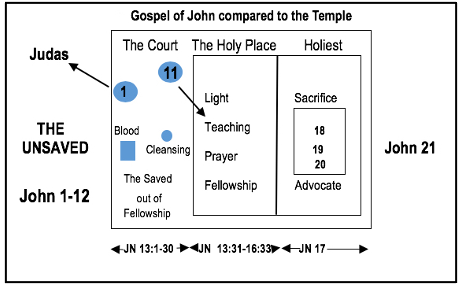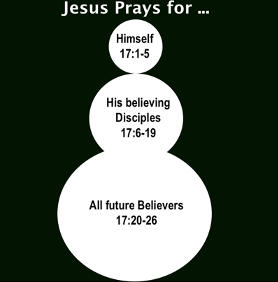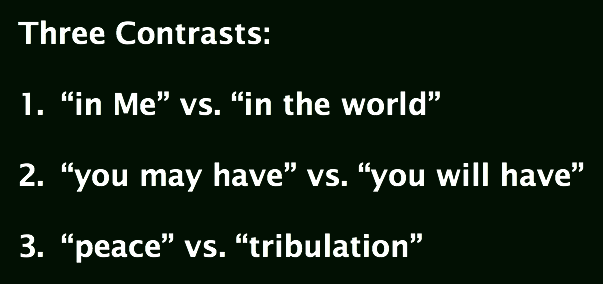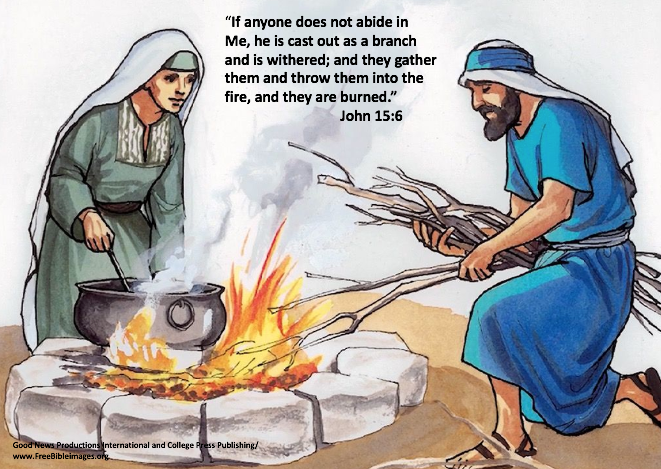“Jesus spoke these words, lifted up His eyes to heaven, and said: ‘Father, the hour has come. Glorify Your Son, that Your Son also may glorify You.’ ” John 17:1
In 1952, a brilliant guest lecturer was asked, “What is there left in all the world that has not been done for a doctoral dissertation?” The lecturer replied, “Find out about prayer.” The lecturer happened to be Albert Einstein.
It has been said that, “Prayer is conversation with God that arises out of communion with God.” The closer we grow to the Lord, the more intimate our prayer life will be with Him.
Do you believe in prayer? Honestly, do you believe God hears us when we talk to Him? Can He be trusted with our deepest longings and most troubling fears? I would like to think that the majority of people in the world today may consider praying to a Supreme Being more than ever before during this global pandemic. But there are probably some people who want nothing to do with a Higher Power because of the suffering that is taking place in the world today.
Jesus Christ frequently turned to His heavenly Father in prayer (cf. Luke 5:16; 22:39). After warning His disciples of tribulation and comforting them with the promise of His victory (John 16:25-33), Jesus turned to His Father in prayer in John 17. In this prayer, we have one of the most intimate glimpses anywhere in Scripture of the heart and mind of the Lord Jesus. This is the longest of our Lord’s recorded prayers. It is the longest in length and it is also the longest in span of time. It includes the time of Jesus’ day and reaches all the way to our lives today.
John 17 is like the holy of holies of the book of John. Remember the holy of holies in the temple where once a year the high priest could go in and make the sacrifice for the people and pray for the people (cf. Exodus 30:10; Leviticus 16:1-34; Hebrews 9:7)? It was such a holy place because it was God’s presence. John 17 is a chapter like that. Dr. David Anderson understands the outline of John’s gospel to be parallel to the temple (see diagram 1). 1

The first twelve chapters are about evangelism whereby John presents seven miraculous signs so non-Christians might believe in the name of Jesus (John 20:31). When we come to the Upper Room Discourse (John 13-16), there is a shift from evangelism to intimacy or fellowship with God. This truth is not for unbelievers.
Anderson writes, “That is why in John 13:1-30, Judas must be sent out of the room as one of the two steps to prepare Jesus’ disciples for the intimate truth He wishes to share. The second step of preparation was to wash the feet of the remaining believers. Judas had no place in this setting because he was not a believer. Unbelievers had to come into the temple/ tabernacle through the blood, but believers could only go into the Holy Place through the laver of cleansing. The truth Jesus wished to share in the Upper Room was for the ears of believers only. But even these believers needed to be cleansed of their daily sins in order to be in fellowship with the Lord. If they were not in fellowship with Him, they would not be able to comprehend the truth He wished to share.” 2
“It is in the Holy Place that we find the table of shew-bread and the candelabra of light. Here is food and light for the believer who has been cleansed by the blood (relationship) and the water (fellowship). So if we have Preparation in John 13:1-30 (the unbeliever is sent out and the believers are cleansed with water), then we have Preaching in John 13:31-16:33. It is no coincidence that we find Prayer in John 17. Here the High Priest intercedes for those who are His own, His disciples and all who would believe through their ministry. The High Priest has entered the Holy of Holies to intercede for His people. But this High Priest does more than intercede in prayer. He actually became our mercy seat (Rom 3:25) as He loved His own to the uttermost (John 13:1). Thus in the Passion and Resurrection narrative of John 18-20, Jesus has become the Lamb of God who takes away the sin of the world. His sacrifice was accepted by the Father as fully sufficient, as proved by His resurrection. Then leads His own out of the tabernacle and into the world (John 21) to complete the mission.” 3
So John 17 is Jesus’ High Priestly prayer for us. As we study this chapter of John, I hope we will embrace the fact that we are with Jesus entering into God’s presence. It is an incredible privilege. Just like the high priest used to enter into the temple where God’s presence was, Jesus Himself entered into God’s presence and prayed for us. The sense of this prayer is we are in a very holy place where we listen to Jesus pray.
This prayer is commonly known as the High-Priestly prayer of Christ or the Prayer of Intercession. Intercession refers to praying to God on behalf of others. This prayer is a picture of Jesus’ current ministry of intercession in heaven as our High Priest (cf. Romans 8:34; Hebrews 7:25). Jesus prays this prayer in front of His Eleven disciples to summarize His relationship with the Father and the relationship He wants them to have with Him and the Father. Repeatedly Jesus had connected His going to the Father with their new life of prayer (John 14:12-14; 15:16; 16:23-24, 26). The power of prayer in Jesus’ name would be connected to His intercession for us in heaven. This prayer will teach us what it means to pray in Jesus’ name. It will also show us Jesus’ love and concern for His disciples, including you and me.
From John 17, we will answer the question, how can we pray more like Jesus prays? After Jesus’ Upper Room Discourse (John 13-16), He prepared for the cross by turning to His Father in prayer. Notice that He taught His disciples first, and then He prayed for them to internalize what He had just taught them. We would be wise to do the same. Peoples’ lives will not be transformed through the preaching of God’s Word alone. We must pray for those people to apply what they have heard from God’s Word.

We see in this prayer that Christ first prays for Himself (John 17:1-5), then His followers (John 17:6-19), and finally for future believers (John 17:20-26). His prayer is like circles that grow wider and wider (see diagram 2). He starts with Himself, then He widens the circle beyond Himself to pray for His Eleven believing disciples. Then He widens the circle a lot more by praying for all future believers that His disciples (and others) would reach. So He begins with His own need, then prays for the needs of the disciples, then He prays for the world that they would reach.
As Jesus prays this prayer, we will learn what is really important to Him – desperately important. Here Jesus is. He is about to die. He knows that these disciples are going to have tremendous needs in their lives. He loves them, so He prays for them. How can we pray more like Jesus prays?
LIKE JESUS, WE ARE TO PRAY FOR GOD TO BE GLORIFIED WHEN WE FACE TRIALS (John 17:1-5). We might think this is selfish to begin by praying for Himself, but when we look at the content of this part of His prayer, we will realize this is not selfish because Christ’s motivation was to glorify His Father. Jesus prays for two things in this first part of His prayer: His resurrection (John 17:1-3) and His glorification (John 17:4-5).
“Jesus spoke these words, lifted up His eyes to heaven, and said…” (John 17:1a). The word for “eyes” (ophthalmous) is where our English word ophthalmologist is derived from. 4 Christ does not bow His head or close His eyes as we are accustomed to doing in our western culture. There is more than one posture to take when we pray. You can pray while you are walking or driving( just make sure to keep your eyes open). You can pray when you are standing or kneeling with your hands raised, or you can pray sitting or laying down. There is no one way you have to pray. If you are in the habit of taking only one posture when you pray, you may want to change that up from time to time. It could revolutionize your prayer life.
Christ prayed aloud so His disciples could hear what He prayed to His Father. Likewise, as we disciple new believers in Jesus, it is important to pray aloud with them because God can use that to teach them how and what to pray. I am not exactly sure where Jesus prayed this prayer. It may have been in the Upper Room (cf. John 18:1) or on their way to the Garden of Gethsemane (John 14:31).
We are told that Jesus “lifted up His eyes to heaven.” He was not discouraged or downcast as He approached the cross, He was hopeful and expectant as He looked up to His Father in prayer. He had just announced that He had “overcome the world” (John 16:33), and now He engages in a prayer of victory!
The first thing Jesus prays is, “Father, the hour has come. Glorify Your Son, that Your Son also may glorify You.” (John 17:1b). Jesus prayed, “Father, the hour has come…” By addressing God as “Father,” He expresses His childlike relationship to His Father and His submission to Him. His long-anticipated “hour has come” for His death, resurrection, and ascension to His Father in heaven (cf. John 2:4; 7:6, 8, 30; 8:20; 12:23, 27-28, 31-33; 13:1, 31).
Jesus is not being selfish here when He prays for the Father to “Glorify Your Son,” because it serves a higher purpose – “that Your Son also may glorify You.” The word “glorify” (doxason) is derived from the word “glory” (doxa) which “refers to the estimation or opinion in which one is held. Here Jesus prays regarding His own reputation and attributes. His words ‘Glorify Your Son’ petition the Father to bring into full display Jesus’ divine character and attributes through His impending death and resurrection.” 5 Christ’s death, resurrection, and ascension would also “glorify” the Father by enhancing His reputation and attributes through Jesus, since Jesus is a perfect reflection of the Father (John 12:44-45; 14:9-11) and was sent by Him (John 4:34; 7:16; 8:18; 14:24; 17:8, 18).
We see in this verse how much “the Father and Son love one another and desire to make much of one another before a watching world. Those who come to God through Jesus Christ are called to participate in this intra-Trinitarian love, bringing glory to God through our faith in and obedience to the Son.” 6
Jesus’ words remind us that suffering precedes glory (Matthew 16:21-27; 20:19; Philippians 2:5-11; Hebrews 2:9-10; 12:2). 7 Through His suffering and death, Jesus brought glory to Himself and to His Father. Likewise, when we suffer for Christ’s sake, we bring glory to Him and He promises that God will give glory and honor to us in the form of eternal rewards at the Judgment Seat of Christ (John 12:26; cf. Matthew 16:21-27; Romans 8:17; I Corinthians 3:11-15; 2 Corinthians 5:10; I Peter 1:3-11; 2:11-25; 4:12-5:4; Revelation 2:10, 25-29; 22:12).
We may ask, “How did the Father glorify Jesus?” Jesus prayed, “As You have given Him authority over all flesh, that He should give eternal life to as many as You have given Him.” (John 17:2). The Father glorified Christ by giving “Him authority over all flesh” so Jesus would “give eternal life” to those the Father had “given Him.” Only God can give life that never ends to people which means Jesus must be God! Notice Christ has authority to give eternal life to “all flesh”! There is no such thing in the Bible of only a select group of people that are savable. All people are savable because Christ is drawing all people to Himself (cf. John 12:32), He desires all people to be saved (I Timothy 2:3-4), and He died for all people (cf. I Timothy 2:3-6; I John 2:2).
Five times in this prayer, Christ refers to believers as those whom the Father had given Him (John 17:2, 6 [twice], 9, 24). Does this refer to the elect from the foundation of the world? Does it mean a person cannot believe in Christ if the Father has not given him or her to Jesus? No, this is a reference to the Father giving Old Testament believers in the Dispensation of Law over to Jesus at the beginning of the dispensation of Grace (see John 6:37 for discussion). 8 The Eleven disciples were believing Jews who belonged to the Father, but now the Father transfers them into the Son’s hands for His use and safe keeping at the beginning of the Church Age (cf. John 17:6-12). Now they belonged to Jesus. 9
Someone may ask, “What is eternal life?” Jesus explains. “And this is eternal life, that they may know You, the only true God, and Jesus Christ whom You have sent.” (John 17:3). “Eternal life” is knowing “the only true God, and Jesus Christ whom” the Father “sent.” The word “know” (ginōskō) refers to an intimate knowledge of God, not just an awareness of certain facts. 9 Notice that the primary focus is on one’s relationship with God (“life”),not the duration (“eternal”).This is not just a future promise, it is a present reality for all believers in Jesus. Eternal life is knowing the true God personally in one’s experience forever. Eternal life is not static or unchanging. It can be experienced at deeper and deeper levels as we grow closer to the Father and His Son.
In fact, when we examine the uses of “eternal life” in the New Testament, we discover that when eternal life is referred to as a present acquisition, it is received as a free gift by believing in Jesus (cf. John 3:15-16, 36; 4:10-14; Romans 6:23; I Timothy 1:16; I John 5:13; Revelation 22:17), but when eternal is referred to as a future acquisition, it is received as a reward for sacrificial service to Christ (cf. Matthew 19:29; Mark 10:29-30; John 12:25-26; Galatians 6:8).
Some have argued that John 17:3 shows Jesus is not God because Jesus distinguished God the Father as “the only true God” from “Jesus Christ whom” the Father sent. But Jesus did NOT say, “I am not God” in this verse. You will not find that anywhere in the Bible. Jesus was not denying He was the “only true God,” but was praising the Father as such. The very next words after this verse are: “I have glorified You on the earth. I have finished the work which You have given Me to do. And now, O Father, glorify Me together with Yourself, with the glory which I had with You before the world was.” (John 17:4-5). Jesus said He shared the glory of God the Father before the world was.
But the Yahweh of the Old Testament says, “I am the Lord, that is My name; and My glory I will not give to another.” (Isaiah 42:8). How can Jesus claim to have the glory of His Father before the world was if Yahweh says He will not give His glory to another? Because Jesus is the Yahweh of the Old Testament. He has the same divine nature as His Father in heaven. Jesus identifies Himself with the Father. Jesus is in the Father, and the Father is in Jesus (John 10:38). Jesus is one with the Father (John 10:30). They are not divided in essence. So, in one sense Jesus is in the Father; and if the Father is the only true God, then Jesus is also the True God. In John 17:3, Jesus was not creating a point of distinction between Himself and the Father in the expression, “only true God”, but between the Father and any other “so called god” like idols. Jesus had lived among the Romans with their many competing gods and Jesus was addressing the Father with these idols in mind.
This understanding is substantiated by the same writer of John 17:3 when he writes in his epistle, “And we know that the Son of God has come and has given us an understanding, that we may know Him who is true; and we are in Him who is true, in His Son Jesus Christ. This is the true God and eternal life.” (I John 5:20). John clearly states that Jesus Christ is the true God and eternal life. He then writes, “Little children, keep yourselves from idols. Amen.” (I John 5:21). John affirms that Jesus “is the true God” and then immediately warns his readers to guard themselves “from idols” or false gods.
Also the Greek word for “only” (monos) in John 17:3 does not always refer to absolute exclusivity. For example, monos is used in Jude 1:4 of “the only” Lordship of Jesus Christ, “For certain men have crept in unnoticed, who long ago were marked out for this condemnation, ungodly men, who turn the grace of our God into lewdness and deny the only [monos] Lord God and our Lord Jesus Christ.” Jude is not excluding God the Father when he refers to “the only” Lordship of Jesus Christ. Other verses in the Bible confirm the Lordship of God the Father (Psalm 2:7; 110:1; Isaiah 63:16; Mark 13:20; Luke 10:21-22) and God the Son, Jesus Christ (Psalm 110:2; Luke 6:5; 19:31; John 13:13; 20:28; Acts 2:36; 10:36; 16:31; Romans 10:9; Philippians 2:11; Revelation 17:14).
To say that Jesus denies He is God in John 17:3 would contradict the entire message of the gospel of John which begins (John 1:1-18) and ends (John 20:28-31) with the fact that Jesus is God. The burden of proof rests upon those who deny Jesus is God. John calls them “antichrists” in his first epistle who reject that “the Christ,” the Messiah-God,has come in human “flesh” (I John 2:18, 21-22; 4:1-3). They willingly reject the historical record of the Bible which clearly and consistently proclaims that Jesus is fully God (cf. Isaiah 9:6-7; 44:6; John 1:1, 14-18, 34, 49, 5:6-47; 6:69; 8:57-59; 9:35-38; 10:30-39; 11:27; 14:7-9; 17:5; 20:28, 31; Acts 16:31, 34; 20:28; Romans 1:3-4; 9:5; Philippians 2:6, 9-11; Colossians 1:15-20; I Timothy 3:16; 4:10; Titus 2:13; Hebrews 1:8; I John 4:2-3; 5:20; Revelation 1:17; 22:13; et al.) and fully Man (Genesis 3:15; Isaiah 9:6-7; 7:14; Daniel 7:13-14; Matthew 8:24; 9:11; Mark 6:3; John 1:14; 2:12; 4:6; 7:3, 5; 11:35; 12:27; 19:28; 21:12; Philippians 2:7-8; I Timothy 2:5; I John 4:2-3; et al.)!!!
Our privilege is to know God personally now and forever through Jesus Christ (John 17:3). If this is true, and it is, then the one thing that will last beyond this life and the one thing that deserves our utmost attention is our daily life and fellowship with God. Many of us have known the Lord for a long time, but has our knowledge of the Lord grown deeper as a result of spending time with Him and obeying Him (cf. John 14:21, 23)? What are we doing today to know God more intimately?
Next Jesus prayed, “I have glorified You on the earth. I have finished the work which You have given Me to do.” (John 17:4). As Jesus faces the cross, He has no sense of failure, but rather fullness of attainment. He had “glorified” His Father “on the earth” and “finished the work which” the Father had given Him to do – revealing the Father by His words and works (cf. John 1:18).
“And now, O Father, glorify Me together with Yourself, with the glory which I had with You before the world was.” (John 17:5). Christ does not pray for new glory. He prays, “Glorify Me together with Yourself, with the glory which I had with You before the world was.” The words, “the glory which I had with You before the world was,” affirm the eternality of Jesus Christ and His preexistence as God before He became a human being on earth. Notice that Jesus clearly affirmed his pre-existence. “Before the incarnation, before Jesus was conceived by the Holy Spirit in the womb of Mary, before the creation week even began, God the Son eternally existed in the glorious presence of God the Father. And to this glory He would soon return.” 10
These words also affirm Jesus’ equality with the Father, because in the Old Testament, God said He would not share His glory with anyone: “I am the Lord, that is My name; and My glory I will not give to another” (Isaiah 42:8; cf. 48:11). Since the Father and the Son share their glory, they must both be God.
Christ’s human flesh had veiled this glory He shared with the Father in eternity past during His earthly life (Philippians 2:6-8), and now He prays that that same glory may be restored in His Father’s presence. As Jesus had glorified the Father on earth (John 17:4), now He prayed to be restored to His heavenly glory with His Father (John 17:5).
Like Jesus, we are to pray for God to be glorified when we face trials. Christ faced His sufferings and death with the desire to glorify His Father in heaven. He submitted to His Father’s timetable and agenda. This takes humility. Jesus went through terrible pain and suffering to honor His Father. Are we willing to do that? Are we willing to submit to God’s timetable for us? If not, pray for that willingness. When we are struggling and in pain, it is easy to obsess on ourselves and it is especially difficult to focus on others and on what God wants. Through prayer, we can obtain the power to focus on God’s will for us and glorify Him even though we may be in pain. The best way to face calvary (suffering), is to spend time Gethsemane (prayer).
Keep in mind that Jesus is praying for us now in heaven (Romans 8:34; Hebrews 7:25). He is praying for us to glorify our Father in heaven as we face difficulties. Sometimes when we face difficult situations, we do not know how to pray, so the Holy Spirit intercedes for us and prays according to God’s will on our behalf. “26 Likewise the Spirit also helps in our weaknesses. For we do not know what we should pray for as we ought, but the Spirit Himself makes intercession for us with groanings which cannot be uttered. 27 Now He who searches the hearts knows what the mind of the Spirit is, because He makes intercession for the saints according to the will of God” (Romans 8:26-27). So we have both God the Son and God the Holy Spirit praying for us, especially when we face trials in life. What an encouragement this is for us as we seek to glorify the Father during these challenging times!
Prayer: Precious Father in heaven, thank You so much for Jesus’ prayer in front of His eleven believing disciples. We are given an incredible glimpse into the intimate relationship Jesus had with You during His earthly ministry. And just as He prayed for You to be glorified when He faced His hour of suffering and death, help us to yield ourselves to You in prayer so You are glorified when we face difficult times. And like Christ Who submitted to Your timetable and agenda, may we humbly submit to Your timetable and will for our lives. Please make us willing when we are unwilling to do this. We can so easily focus on ourselves when we are hurting or in pain, instead of focusing on others and what You want to do in our lives. But praying to You gives us hope because as we talk to You, You can give us the power to focus on Your will for our lives and glorify You in the midst of our struggles. Thank You, my Lord and my God, that God the Son and God the Holy Spirit are also praying for us in addition to You. Knowing this greatly encourages our hearts. In the beautiful name of Jesus Christ we pray. Amen.
ENDNOTES:
1. David R. Anderson, Maximum Joy (Irving, TX: Grace Evangelical Society, 2005), pp. 16-17.
2. Ibid.
3. Ibid., pp. 18-19.
4. J. Carl Laney, Moody Gospel John Commentary (Chicago: Moody Press, 1992), pg. 300.
5. Ibid.
6. Tony Evans, CSB Bibles by Holman. The Tony Evans Bible Commentary (B&H Publishing Group, Kindle Edition, 2019), pg. 1813.
7. Robert N. Wilkin, “The Gospel According to John,” The Grace New Testament Commentary, Vol. 1: Matthew – Acts (Denton, TX: Grace Evangelical Society, 2010), pg. 457.
8. Anthony B. Badger, Confronting Calvinism: A Free Grace Refutation and Biblical Resolution of Radical Reformed Soteriology (Anthony Badger, 2013), pp. 185-186.
9. Ibid., pp. 116, 186.
10. Tony Evans, pg. 1814.














